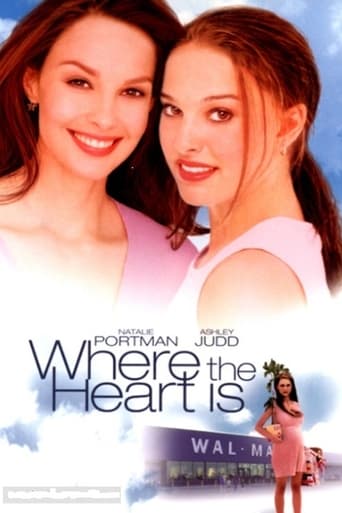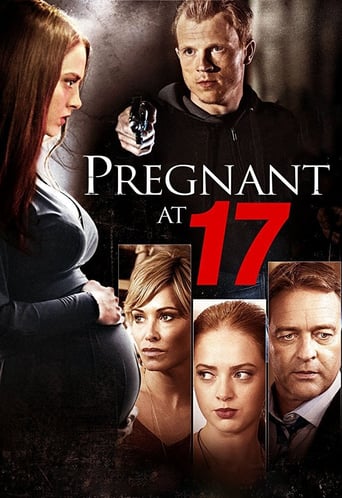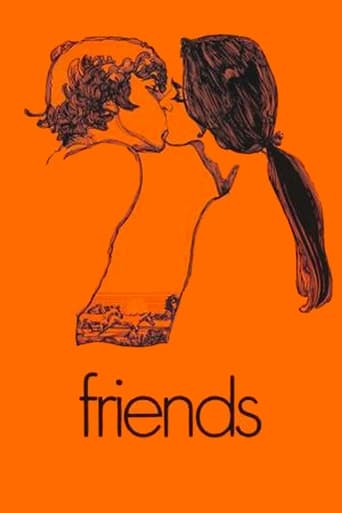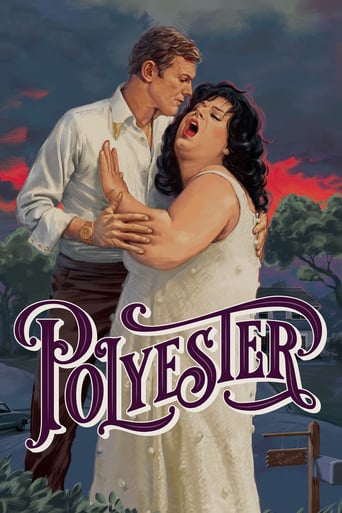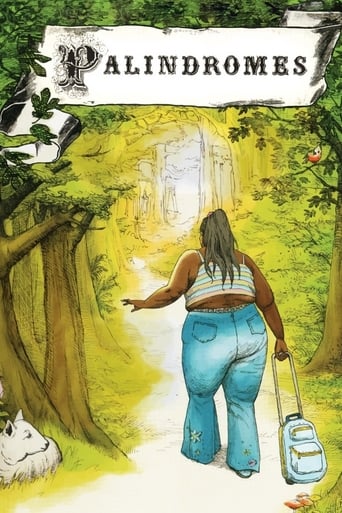
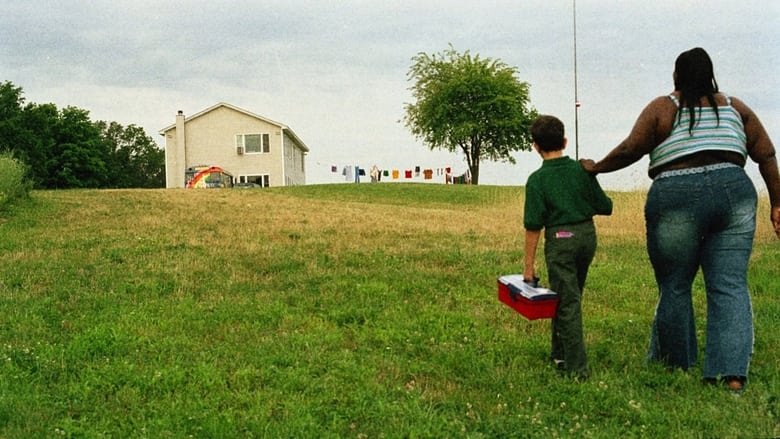
Palindromes (2005)
Aviva is thirteen, awkward and sensitive. Her mother Joyce is warm and loving, as is her father, Steve, a regular guy who does have a fierce temper from time to time. The film revolves around her family, friends and neighbors.
Watch Trailer
Cast


Similar titles
Reviews
Absolutely Fantastic
A Disappointing Continuation
The storyline feels a little thin and moth-eaten in parts but this sequel is plenty of fun.
The best films of this genre always show a path and provide a takeaway for being a better person.
Todd Solondz's fifth feature, a divisive drama-comedy even among his acolytes, PALINDROMES makes great play of an outré gimmick, its protagonist, a 13-year-old girl Aviva is played by eight different actors in its chronicling chapters (8 chapters plus a coda rehashes the same procedure in Aviva's broody attempt), they are vary in appearance, age, race, even sex (including one familiar face, Jennifer Jason Leigh, superbly cooing to capture a child's mannerism), fairly predates I'M NOT THERE. (2007), from another Todd, incontrovertibly much more prestigious, Mr. Haynes. Yes, Aviva, her name is a palindrome, which is recently implemented in Denis Villeneuve's ARRIVAL (2016) to under-gird the ethereal mystery of predestination, yet in Solondz's methodology, palindromes are emblems of human nature, which is explicitly rounded out by the acrimonious speech of Mark Wiener (Faber) near the ending, a character stems from Solondz's breakthrough WELCOME TO THE DOLLHOUSE (1995), here an alleged pedophile shunned by everyone else but Aviva - we perpetually run back to the same pattern in our individual trajectory and remain more- or-less the same person, that is palindrome, a sociological pathology nestled everywhere. The story unflinchingly tackles the thorny subjects of baby fever, teen sex, abortion-and-its-risk, child abuse, religious fanatics and pedophile, sometimes feels a tad over-stretching to skewer all these into one feature length, and how on earth could we endorse an opinionated pre-teen who is possessed with the idea of becoming a mother, with some part of the world is still endemic with harrowing child-bride horrors? Nor can we lay the complete blame on her helicopter mom Joyce Victor (Barkin), as self-serving and inconsiderate as she is, when a girl is at that delicate age, honestly, moms always know the best. Ingenious as the narrative device is, spoon-feeds us with the universality of the identity of Aviva, each chapter can be regarded as a vignette holds its own wholeness, interleaved with an idyll interlude when Aviva is played by a boy (Denton) roaming in the countryside. The meat of the story is the chapter where Aviva is portrayed by a plus-size adult black woman (Wilkins), an elephantine presence where a 13-year-old girl dwells inside, this agency of discrepancy imbues a perturbing vibe during Aviva's sojourn with the counter-intuitively insidious foster family headed by God- botherers Mama Sunshine (Monk) and Bo Sunshine (Bobbie). And in the ensuring sequences where Aviva hitchhiking with a stocky middle-aged lorry-driver-turns-hit-man Bob (Guirgis), the inappropriately one-sided tenderness is spiked with a pungent scent of reactive self- consciousness from another side, one might get bemused in Solondz's straddling stance about the semi-romantic-semi-perverse rapport (though we firmly grasp his take on pro-choice/pro-life option) until the violence bursts out, follows by a foregone conclusion and rounds off Aviva's daring adventure. Contentious in its self-inflicted archness, PALINDROMES is hard to decipher after its bold but sketchy presentation of a nexus of problems beset in America, like a nihilistic anecdote sums up to this: everything sucks, people are doomed and our world rotates in a rut, ad nauseam, especially under today's circumstances, we don't need to watch a movie to get a glimpse of this.
Dreadful and smart-alecky piece of closed-minded, nihilistic trash from hack-director Todd Solondz of Happiness and Welcome to the Dollhouse fame. Palindromes marks a noticeable departure in Solondz's vitriolic hate as he begins to enter the realm of the political, taking on the issue of abortion. He devotes approximately 1/3 of the film to discrediting extreme and irresponsible pro-choice people, which he demonstrates by including a monologue from a suburban mother who explains to her daughter the value of aborting a child when it has become an inconvenience. Another third is devoted to demonstrating the absurdity of the extreme Christian pro-life individuals (whom Solondz clearly despises even more), as he reveals a house run by Christian fanatics as they take in abandoned children and feed them with violent anti-abortion polemics. Clearly Solondz has many problems with organized religion, and many problems with suburban American life; however, he also seems to have a problem with humanity. He is unable to see anything redeeming in the human race, and all his characters exhibit weakness, evil, disability, stupidity, and deep-seeded depravity. This is a cruel and narrow vision of humanity and Solondz knows it, his films are simply a gathering of scenarios which are intended to shock and horrify, nothing more. Palindromes is also distinguished by a pretentious application of multiple actresses for the same empty character. Wow. What profundity.
The latest film from oddball director Todd Solondz may battle his last film Storytelling for being the least accessible. Reportedly Solondz financed the film himself when he could not find studio backing. The film follows the exploits of young Aviva, the thirteen year old cousin of the Dawn Weiner character from Solondz' first film Welcome To The Dollhouse. Dawn commits suicide off screen and the young Aviva wonders if she is destined for the same fate. Her mother, played by the talented Ellen Barkin, assures her that she's loved and such a fate will not visit her. Aviva spends the rest of the film looking for love and/or trying to get pregnant in order to have a baby to love and return love.What follows is that Aviva is abused, exploited, and mistreated at every turn. She grows more disillusioned throughout the film, discovering the difficulty of her boundless optimism co-existing with the hypocrisy of human beings around her. Solondz attempts to underline the focus of the film fable by removing our identification with a main actress playing Aviva. Instead, several different characters of different ages, genders, races, and sizes play Aviva keeping our attention on the kind of interaction that unfolds throughout the film rather than how or if it affects Aviva. Mark Weiner becomes the spokesperson for Solondz at the end of the film, indicating that people do not really change much. We're raised a certain way, harbor a few desires and wants, and set out to satisfy them, regardless of the world and people around us. This train of thought is also what leads to some funny and ridiculous occurrences in the film. **1/2 of 4 stars.
Thirteen year old Aviva has a simple, naive dream of having lots of babies so that she always has someone to love and to be loved by. However when this ambition is realised in her first sexual encounter with a neighbour's son, her parents convince her to have an abortion. As a result Aviva runs away to find a better world and become happy there. What she finds though is a country that doesn't correspond with her good-natured and cheerful view of how life should be.I'll be honest and say that Palindromes sat on my HDR for ages waiting for me to be in the mood for Todd Solondz's view of the world. Ironically here he takes his subject as an naive (rather than "innocent") teenage girl, who is trusting and accepting of what she finds these are the eyes that we see the world through, I imagine with the aim of letting what/who she sees hanging themselves by their words and actions. In this way he delivers a film that in theory should be a searing judgement on Middle America's religious ideals, ideas of "happiness" and so on, but in reality he doesn't manage it. There are flashes of cutting comment but mostly his targets are too easy or are gone after in a clumsy, rather mocking fashion that means it is a lot less insightful and intelligent than I would have liked.The delivery of these means it is still engaging. The device of using different actresses of ages, shapes and colours to portray the same teenage girl in different scenes is an interesting one that does stand out for being "different" but it is not as meaningful to me as others have said that it was for them. Horses for courses I suspect but for me it didn't seem to be used that well within the film and as result just comes across as different for the sake of being different. Credit to the actresses playing the part though, all of whom I though did very well (apart from the little girl, who was just annoying).Palindromes is a strange beast that is interesting to watch but nowhere near good enough to really love. Some viewers I'm sure will find much to love in the novelty and imagination involved in it but the killer for me was that it just wasn't smart or cutting enough. Absolutely worth seeing once just because whatever else he is, Solondz is never dull.





